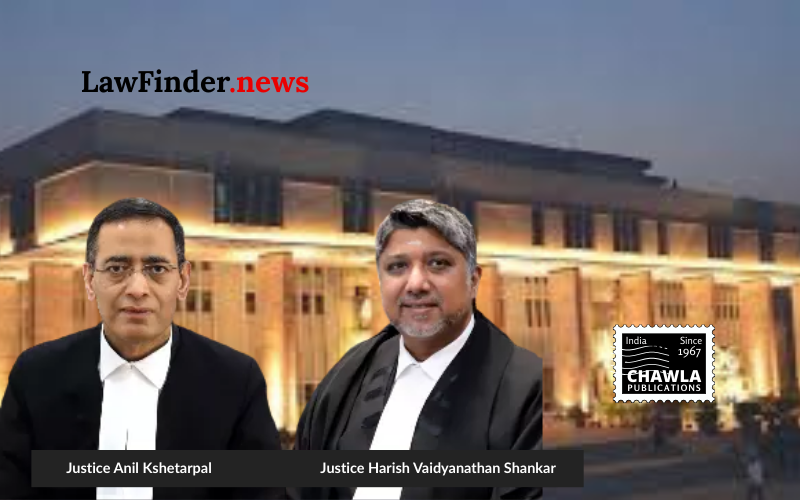High Court asserts mutual consent as a substantive requirement under Section 13B of the Hindu Marriage Act, 1955
In a significant ruling, the Delhi High Court has set aside a Family Court's judgment that had suo motu converted independent divorce petitions into a mutual consent divorce under Section 13B of the Hindu Marriage Act, 1955. The Division Bench comprising Justices Anil Kshetarpal and Harish Vaidyanathan Shankar emphasized that mutual consent is a substantive statutory requirement, not merely a procedural formality.
The case involved Upinder Kaur Malhotra and Capt Teghjeet Singh Malhotra, who had separately filed fault-based divorce petitions under Section 13 of the Hindu Marriage Act on grounds of cruelty and adultery. Despite no joint petition being filed, the Family Court dissolved their marriage under Section 13B, prompting an appeal.
The High Court scrutinized the Family Court's reasoning, which rested on the assumption that the parties' separate petitions indicated mutual consent. However, the High Court clarified that mutual consent must be explicit, unequivocal, and continue throughout the proceedings, with a genuine joint petition being a prerequisite.
Citing Supreme Court precedents like Smruti Pahariya v. Sanjay Pahariya and Sureshta Devi v. Om Prakash, the High Court underscored that the element of mutual consent is a jurisdictional fact. The Court also rejected the Family Court’s reliance on the procedural flexibility under the Family Courts Act to bypass substantive statutory requirements, emphasizing that such powers do not extend to altering the legislative scheme of the Hindu Marriage Act.
Furthermore, the High Court highlighted that the Family Court’s assumption of powers akin to those under Article 142 of the Constitution, which are exclusive to the Supreme Court, was legally untenable. Consequently, the High Court restored the original divorce petitions to the Family Court for fresh adjudication on their merits.
This judgment reaffirms the legal framework governing mutual consent divorces and delineates the limits of procedural discretion available to Family Courts, ensuring adherence to statutory mandates.
Bottom Line:
The family court lacks authority to convert independent contested divorce petitions under Section 13 of the Hindu Marriage Act, 1955, into a mutual consent divorce under Section 13B without explicit and joint consent of both parties.
Statutory provision(s): Hindu Marriage Act, 1955 Sections 13 and 13B, Family Courts Act, 1984 Sections 9 and 10, Constitution of India Article 142.
Upinder Kaur Malhotra v. Capt Teghjeet Singh Malhotra, (Delhi)(DB) : Law Finder Doc Id # 2783843




